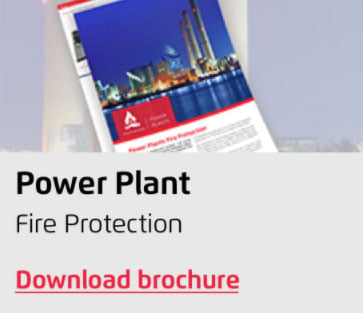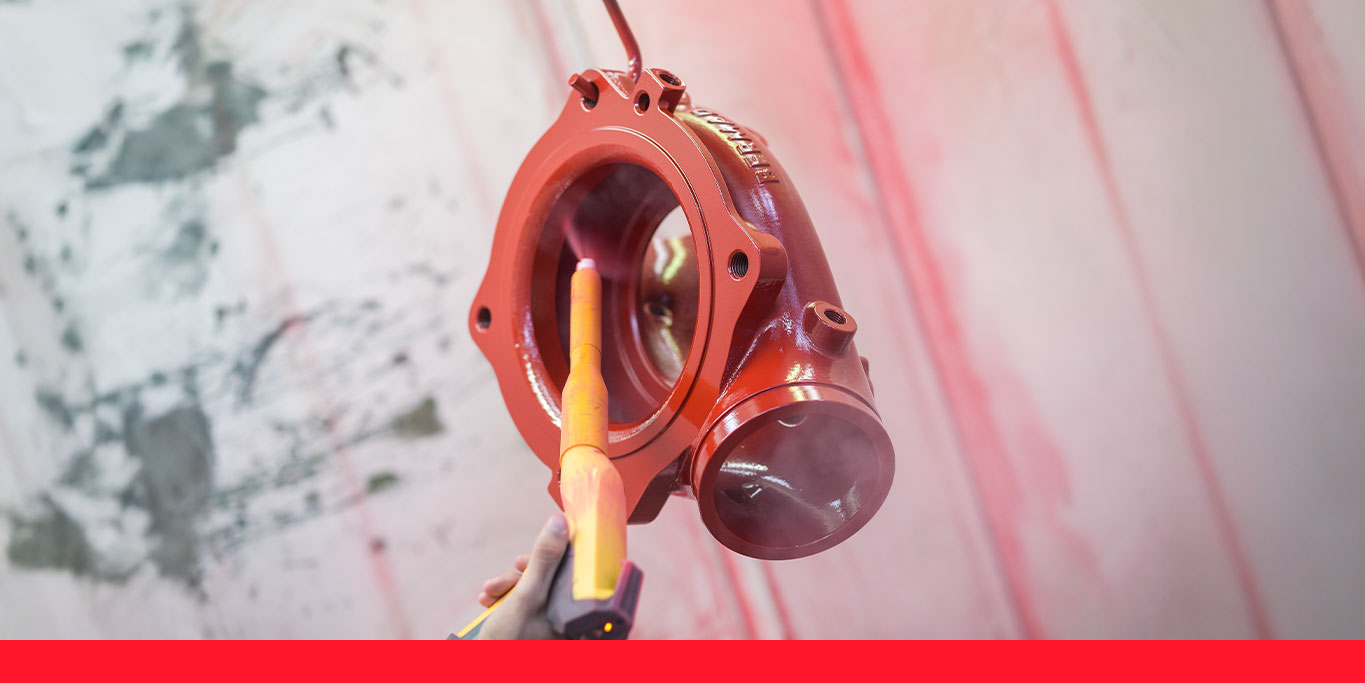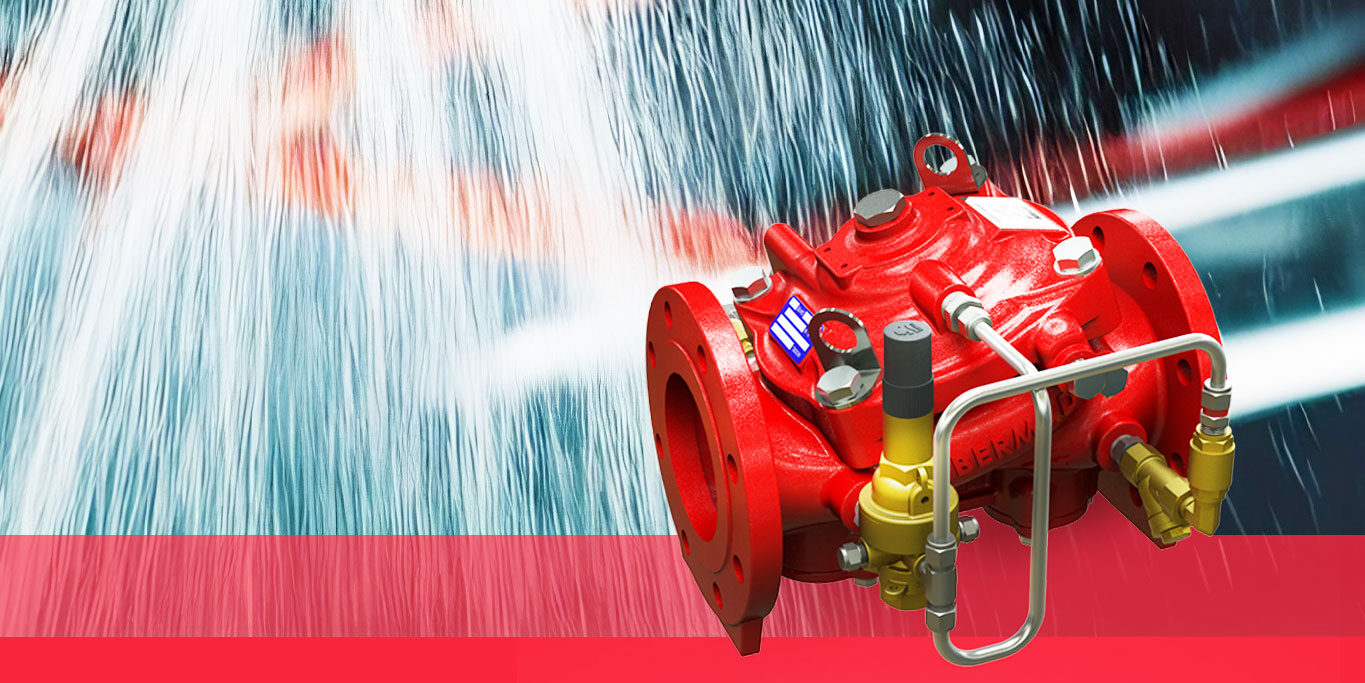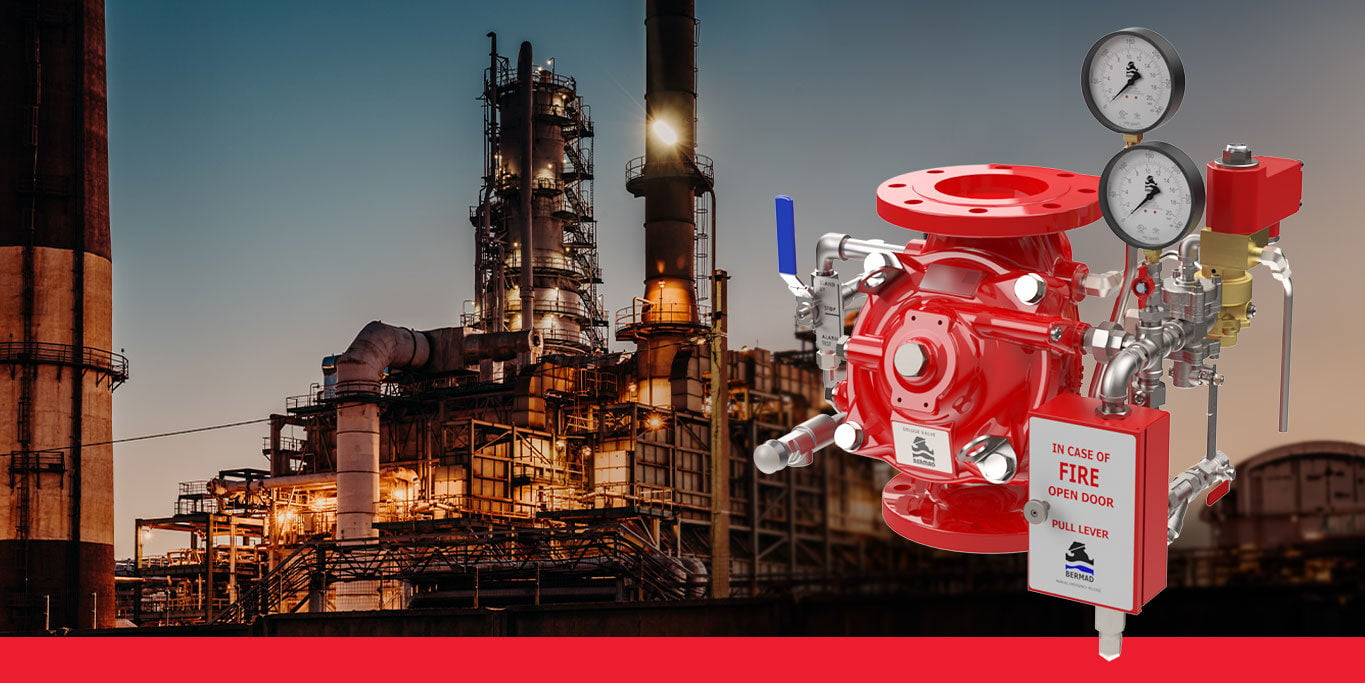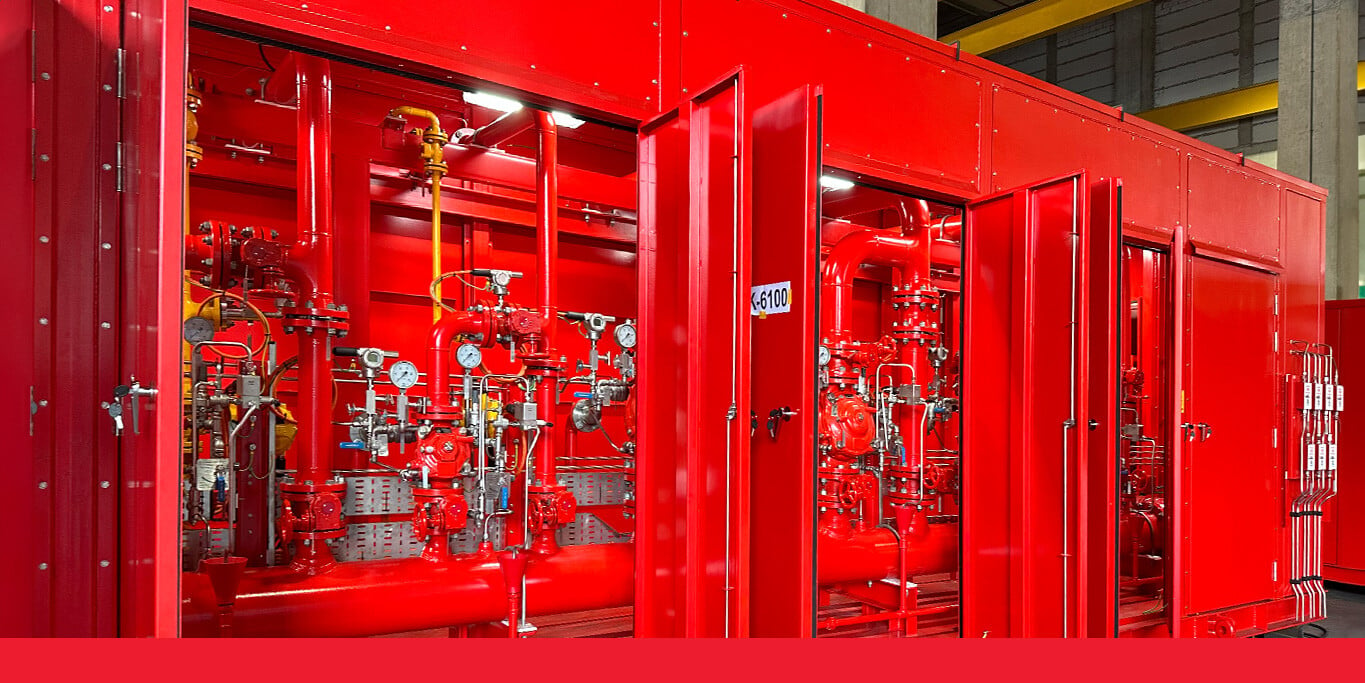Seawater is often used as a fire protection fluid, both in offshore applications and for on-shore sites located close to the ocean, due to its ready availability and low cost. However, seawater does present challenges due to its corrosive nature.
Materials selection is thus a highly important consideration when choosing deluge valves that will be exposed to salt or brackish water. Selecting the appropriate valve material for your application requires an understanding of how seawater reacts with valve materials, as well as materials currently in use and which ones are best suited to particular conditions.
Seawater and Galvanic Corrosion
Water itself is corrosive to many materials (aqueous corrosion), but seawater is especially damaging due to its high salt concentration, which exacerbates corrosion. This happens in particular through a process called galvanic corrosion.
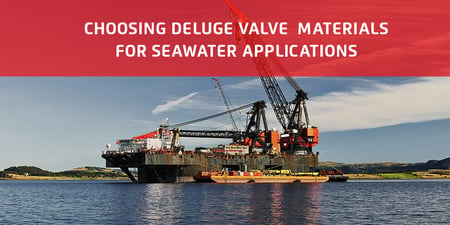
Galvanic corrosion occurs any time two different metals are in contact with an electrolyte. When this happens, it sets up an electric current between them (much like a battery) with the more reactive metal acting as the anode and the less reactive metal acting as the cathode. Corrosion occurs as the anodic (active) metal loses ions to the cathode, typically at a much faster rate than would happen on its own. The more dissimilar the metals are, the greater the danger of corrosion.
The reason this is such a concern in industrial applications is that multiple materials may be present in a single seawater system. So in designing valves for use with seawater it is important to be aware of how metals behave in galvanic reaction to each other in the presence of seawater, as well as what other metals may be present in the environment of the valves, along with cathode efficiency, the area ratio of connected materials, and the amount of electrical resistance present.
Selecting the Right Deluge Valve Material Composition for Water Type
Seawater is an electrolyte due to its chlorine content which is measured as ppm [parts per million]. Materials may be selected according to different levels of water quality that differ in chlorine content. We select body material and control trim material according to the following table:
|
Water type |
Concentration [ppm] |
Deluge valve casting material |
Control trim components material |
|
Pot / Fresh |
<700 |
Ductile iron with high build epoxy powder coating |
Brass |
|
Brackish |
700 to 3000 |
Ductile iron with high build epoxy powder coating |
S.S.316 |
|
Seawater |
>3000 |
Ni. Al. Bronze or higher grade as Super Duplex |
Ni. Al. Bronze & Monel |
When designing seawater systems, choosing the right materials will prevent equipment failure and minimize maintenance. The higher the concentration of chloride salts, the higher resistance materials should be used. This will help ensure that valves will operate as expected in case of a fire emergency.
In addition to the base metal, it’s important to consider the coating. The quality of the coating material used as well as the quality of application can significantly affect a valve’s resistance to corrosion.
How to Evaluate the Most Cost Effective Deluge Valve Solution for Your Project
As a general rule, when selecting deluge valves and other components for a seawater system it is best to consider all aspects of the system and the project environment as a whole. Before selecting a deluge valve for your seawater system, it is helpful to collect the following information:
- An analysis of the water composition, if possible. Knowing the concentration of salts in the water will help in the selection of appropriate valve materials.
- Will seawater be the main fluid for firefighting or used only as backup? If there will be heavy exposure to salt water, choose valve material with greater corrosion resistance.
- What level of maintenance do you expect to have? For example: a ductile iron valve with SS316 control trim requires a smaller upfront investment than a Ni. Al. Bronze body casting but will need to be flushed with fresh water after activation, thus requiring more attention from the maintenance team.
- Does the environment present conditions that are aggressive to copper based materials? For example: In this case, it may be better to go with super duplex casting and control trim material over Ni.Al. Bronze.
- What components (pipe, etc.) will the valve be in contact with? Be sure they are compatible to avoid excessive galvanic corrosion in the presence of seawater.
Quality Control for Fire Protection Valves to be Used with Seawater
At BERMAD, whenever we are dealing with a potential seawater application we pay special attention to several additional points in order to reduce any chance for damage:
- We avoid direct contact of two different materials that could invite galvanic corrosion, whether within a single component or between components in a system we are designing.
- Coating all the surface internally & externally with high build powder epoxy coating for good adhesion to the body.
- We conduct tests to make sure the coating will provide full surface protection against corrosion. If the material is ductile iron, any pinhole in the coating will allow contact with seawater, and that area will be subject to rapid corrosion. Therefore, after coating a valve we conduct a quality control test by applying electrical current between the coating and the body itself, so that pinholes can be detected and eliminated.
For more information or for expert support with seawater deluge systems, contact us to speak with a BERMAD representative in your region.



